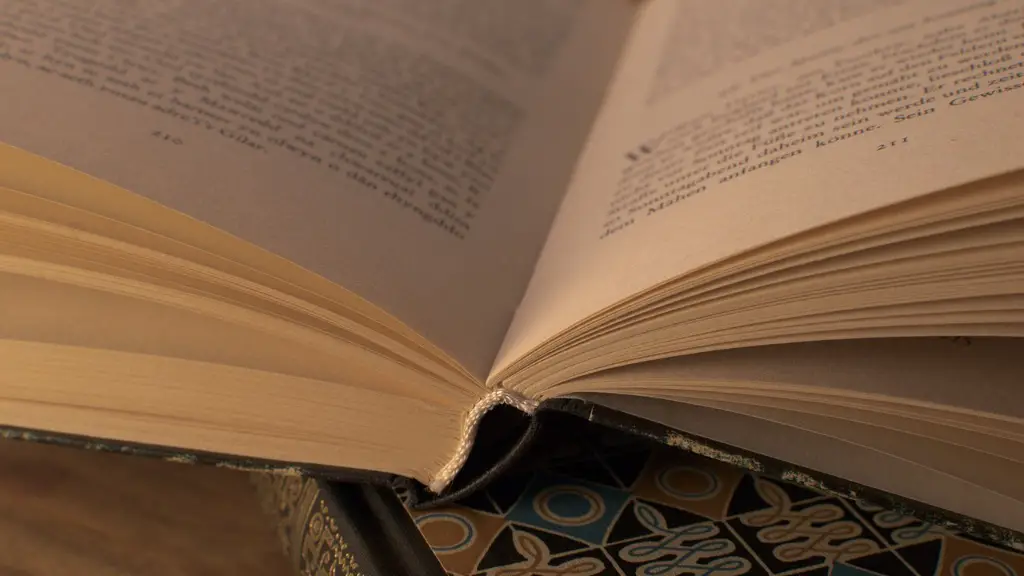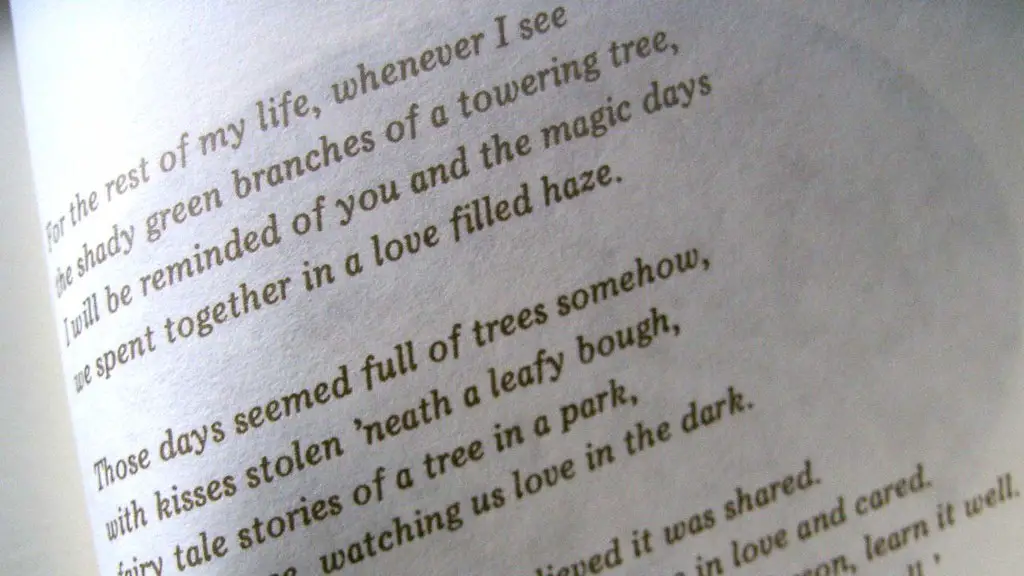Poetry is a highly complex and interesting form of literature that embodies a deep creative use of words. For centuries, it has been a source of inspiration, solace, comfort and a way to express oneself without the impediment of conventional language. As society continues to evolve, and with the ever-growing presence of social media, it seems that people are more reliant on brevity, bluntness and clear communication through text or direct conversation. As a result, there has been an immense decrease in poetry appreciation which makes us question, is poetry still important?
As Professor Toby Miller, a literature critic, explains, poetry has always been one of the most affecting forms of communication, “Poetry stands at the centre of the community” because it celebrates the community’s most cherished values and allows for them to be perpetuated through generations in a very powerful way. Furthermore, poetry has the ability to transcend barriers of language or culture and can foster a greater appreciation for different backgrounds. Professor David Perkins from Harvard University researches reading and writing and has found that “Poetry enhances our sensitivity and gives us ways to see things and experience things in ways we could not before.”
Poetry can also inspire and motivate, providing readers a heightened sense of possibility. When readers are given the opportunity to explore their creativity and express their emotions without the barriers and expectations of social conventions, they can find greater liberation in their thoughts. Through poetry, readers can truly introspect, identify and articulate their sentiments, thoughts and aspirations. Joseph Addison, an English essayist wrote that “I am enchanted with the expressiveness of the language of poetry and am firmly convinced that no other form of literature can so instantaneously and so powerfully awake in the human soul such vivid sensations.”
Poetry is also a powerful tool to aid the reader in their own individual self development. With its many forms, styles and interpretations free for the reader to explore, it can be a deeply engaged and personal form of expression. It can help readers to better understand the world around them and reflect on their own life experiences and lessons. John Ruskin, the English author, art critic and philanthropist, expressed that “Nature is painting for us, day after day, pictures of infinite beauty if only we have eyes to see them.” It is through poetry that readers are given the opportunity to acquire this skill of seeing these pictures and gain a higher understanding of the world around them.
Community and Connectivity
Poetry is integral in the creation of strong and meaningful connections between individuals. Through poetry, readers can gain a deeper understanding of those around them, developing empathy and forming relationships that infinitely provide comfort, solace and support. Rita Dove, an American poet and professor, states that “Poetry reflects the innate human desire to make sense of the world. You might say that it is the language of our souls. The poems that we write and read sweep us away to different realities and immerse us in the timeless depths of the human spirit.” It is through these depths that readers can explore beauty in the small details in life, that are often overlooked, and in doing this, they come to a better understanding of themselves and the world.
Happy people enjoy life more and are more successful in work, education and their personal relationships. Poetry can help readers to reach this ‘happy’ state more quickly and maintain it for longer by providing a platform on which to vent and navigate through their emotions satly. Research has demonstrated that the act of writing can be therapeutic and cathartic, allowing readers to reflect and improve their quality of life. As Ryan Farnham, a poet for The Huffington Post states, “Writers and poets know too well the feeling of relief that comes into one’s life after finally articulating an emotion that has been felt long enough. Poetry captures how we see and how we process, how we live and how we feel. It is a bridge between rational and chaotic thinking, between worlds, between friends, between life and death.”
Conservation of Personal Feelings
In the world that we live in, it is becoming more common for people to shy away from vulnerability and express their feelings and emotions. But as research on emotional literacy takes hold, it is becoming more apparent that the most powerful of connections are those based on emotional depth. Poetry captures and expresses emotion in a simple, genuine and safe way and allows readers to express their personal feelings, in a manner by which they feel comfortable with. While readers can understand their feelings and emotions through talking, poetry provides a venue in which they can complete this task without feeling judged or negatively impacted by another’s opinion.
In addition to being a safe form of expression, poetry can also be a form of memorabilia, as it can capture how readers were feeling at a certain point in their life. In this way, readers can look back on their previous poems and think about who or what inspired them and why. For instance, some people may decide to write poems when they are in love or have had their heart broken, as an ode to the emotion that gave them the inspiration in the first place. In this way, poems can capture significant moments in one’s life, creating a sense of nostalgia.
Education and Development
Poetry is often used in the education system to further students’ understanding of writing and literature. In today’s society, students are yearning for a more engaging teaching method and it has been found that poetry can be used to improve their literacy levels significantly. As research conducted by the Children’s Poetry Book Task Force (CPBTF) suggests, “Teachers frequently cite poetry as the most effective tools to help struggling students because poetry’s pattern enhances their memory and the concentrated length increases their confidence.”
In addition to literacy skills, poetry is also used to develop problem solving, interpretation and analysis skills as it encourages readers to read in between the lines. Poetry also improves students understanding and application of figurative language. This is used to illustrate ideas and help the reader to understand the poem without them having to directly explain the meaning of a word or the feelings the writer is attempting to express. This often allows for a much deeper sense of understanding to be attained.
Cultural Importance
Poetry is an essence of culture for many and for different reasons; for some, poetry holds a nostalgic and sacred presence and for others it is a form of recreation and enjoyment. It has often been used to distinguish certain cultural characteristics; for example, traditional African poetry tends to be group orientated with strong oral elements enabling storytellers to preserve their culture, beliefs and history. Africa is not the only continent who has used poetry to embed certain values, norms and morals, as Pakistani poet Iqbal drafted poetic works for political and moral reformations in his home country.
Poetry is also used to express solidarity and frustration. Poets such as Allen Vingnae and Robert Burns have used their works as a platform to express the anger and agony of their poverty-stricken countries and in turn, help their audience to understand the pains of the social problems they are facing. The influence of these poets has, in many countries, been so powerful that their works have been converted into national anthems and school readings to emphasise their importance in society.
Conclusion
Ultimately, poetry can help readers in the understanding of themselves, the world around them, and in their development. Through expressing raw emotions and feelings either created by, or affecting the writer, poetry has the undeniable ability to inspire, motivate and activate thought. Whether used to preserve a culture, pass on a message, or simply provide comfort and understanding, poetry continues to demonstrate its importance in current society.



